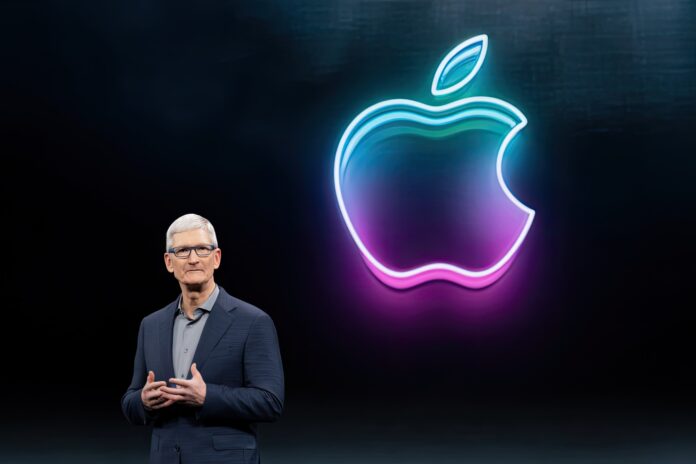Apple’s Big OS Rebrand Shakes Up the Ecosystem
Apple’s Big OS Rebrand has captured the spotlight in tech news this week. At WWDC 2024, Apple officially unveiled a sweeping refinement to its device software lineup, signaling a pivotal transformation in how the company envisions the future of its ecosystem. Most importantly, iOS for iPad now carries the distinct moniker iPadOS, making it crystal clear that the iPad experience stands unique among Apple’s product offerings. Vision Pro enthusiasts also have much to look forward to, with the introduction of visionOS 2 designed specifically to leverage Apple’s push into spatial computing. These changes are more than cosmetic—they underscore a drive toward device differentiation and tailored innovation for each hardware family.
Why the Rebrand Matters
Therefore, the rebranding isn’t a simple change in name. It anchors Apple’s mission of giving each device class its rightful place in the larger workflow. Users can expect smarter multitasking, richer widgets, and deeper AI intelligence. Apple’s flagship “Apple Intelligence”—which will roll out gradually—is set to blend context-aware prompts, advanced dictation, and image generation right on-device, reducing reliance on the cloud. The company also teases new privacy enhancements throughout all operating systems, reflecting a more privacy-conscious future.
What Users Should Watch Out For
If you own an iPad, iPhone, or have invested in Vision Pro, these updates could reshape your daily experience. For business users and creatives alike, Apple is integrating productivity smarts and fluid design changes. Because of this, you should prepare for a future where your Apple device plays an even more tailored role in both your personal and professional workflows.
OnePlus Doubles Down on AI
As AI technology dominates headlines, OnePlus embraces AI by rolling out transformative features in its OxygenOS platform. The company’s latest update brings AI-powered live transcription, intelligent photo editing, and multi-language translation to a growing range of devices. Most notably, OnePlus stakes its reputation on privacy: much of its AI processing takes place locally, bypassing the cloud for many tasks. This direct approach, besides enhancing performance, also ensures data security—a growing concern for global users.
Fresh AI Features on OxygenOS
The new OnePlus experience is packed with productivity tools. For example, live call transcriptions let users record and review important calls seamlessly. The AI photo editor not only enhances images but also suggests artistic changes that reflect trends and user preferences. Besides that, the new translation system supports multiple languages in real-time, making the device an essential companion for international travel and communication. Because all this happens on-device, OnePlus users don’t need to worry about their data hopping across the cloud unnecessarily.
Looking Ahead: AI Roadmap
OnePlus has publicly committed to frequent updates, aiming to expand AI capabilities across its ecosystem. We can expect smoother integration between OnePlus devices and the broader Android landscape, releasing users from platform silos. Importantly, OnePlus is betting big that privacy-first AI will define the next era of mobile user experience, positioning itself as a leader in responsible AI applications for everyday users.
Samsung’s Next Folds Tease Bold Design Moves
Samsung’s Next Folds are generating buzz among tech enthusiasts and industry analysts. The company’s foldable devices, already category leaders, are about to undergo significant enhancements. Rumors and leaked renders suggest the upcoming Galaxy Z Fold6 and Z Flip6 will feature notably slimmer profiles, stronger hinge mechanisms, and updated camera arrays. Because the foldable form factor is maturing, Samsung is dialing up both style and substance for this next phase of innovation.
What to Expect from the New Folds
Most importantly, Samsung appears focused on user comfort and durability. The expected Z Fold6 shows off a less rounded, more squared-off external design and a larger cover display—providing a tablet-like workspace in a pocket-size shell. Rumors also point to major improvements in S Pen support, further turning the Fold into a potential laptop replacement for productivity. Battery life and energy management are also rumored to receive an upgrade, addressing one of the most vocal demands from power users. Therefore, foldable phones may soon be viable for power users, not just early tech adopters.
When Can You Get Your Hands on One?
Samsung’s next Unpacked event, scheduled for July, is the stage upon which these changes will debut. If Samsung delivers on durability and performance, these devices could cement the company’s dominance in premium mobile hardware well into 2025 and beyond. Aspiring to lead both style and substance, Samsung’s next folds may set the industry roadmap for years to come.
Final Thoughts: Gear News That Matters
This week’s gear news paints a clear picture of an industry speeding towards personalization, AI integration, and category-defining innovation. Apple’s Big OS Rebrand isn’t just about names—it’s about deeper intelligence and privacy-conscious workflows. OnePlus’s AI strategy brings practical, secure, and daily enhancements that truly empower end users. Samsung, meanwhile, continues to push the frontier of hardware, reimagining the smartphone form factor itself.
For consumers, the upshot is clear: smarter devices are on the way, able to anticipate needs, streamline tasks, and gracefully blur the lines between work, creativity, and play. Besides that, strong competition among these brands guarantees rapid advancements, bolder features, and transformative experiences.
Stay tuned as this summer’s wave of tech launches unfolds; the future of mobile and desktop technology has never looked brighter nor more exciting.



